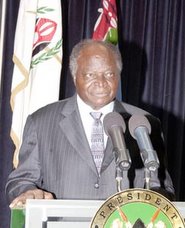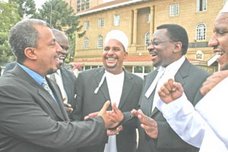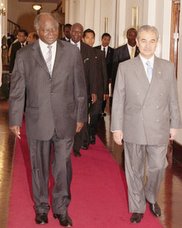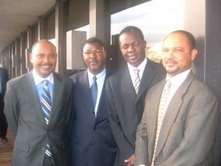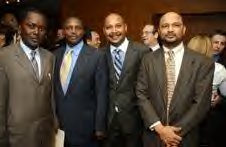
It gives me great pleasure to welcome Honourable Members to this 6th Session of the 9th Parliament. The recess provided an opportunity for Honourable Members to spend time with their constituents, and understand their needs.
Mr. Speaker,
The laws that we have passed and enacted in the last four years form the basis on which Kenyans can realize the dream of a well governed country that is prosperous, just and equitable. In this respect, some the laws this House has passed during the last four years include legislation providing for anti-corruption and economic crimes, public financial management, privatization, procurement and disposal of public assets, and public officer ethics. These have raised the level of prudent management of public resources to unprecedented heights.
Parliamentary watchdog and oversight committees have been vigorous and thorough in discharging their mandates, and in doing so, they have raised the level of accountability to commendable standards. On its part, my Government has pursued a policy of open and transparent conduct of public affairs. We have used the internet in making available a substantial amount of information to the public on various matters such as the budget, national statistics, and ministerial policy blueprints. As a result, we now have a better informed public and close scrutiny by the media, and civil society.
Mr. Speaker,
The future of this country rests on its children who must be nurtured, educated and trained to prepare them for the challenges of nation building. It is in recognition of the critical role of our children in the future of this country that my Government undertook to provide Free Primary Education despite the overwhelming odds. Today, we have more than 7.6 million children in primary school, compared to 6.1 million in 2002, and over 928,000 in secondary school compared to 778,000 five years ago.
The educational reforms implemented by my Government have increased primary school enrolment to over 83 percent, with the target of achieving 100 percent enrolment by 2007. The transition from primary to secondary school has risen to 60 percent this year, with the target of achieving 70 percent next year. Given the success of Free Primary Education, the Government will be focusing more attention on secondary school education which provides the critical mass for the technological advancement of the country. In this respect, the Government is encouraging establishment and equipping of day secondary schools in order to make secondary school education more accessible.
I call on Honorable Members to accord priority to the establishment and expansion of day secondary schools and day streams in boarding schools in the allocation of CDF resources.Further, the Government is developing a policy framework to make secondary school education affordable. In this regard, we will be announcing the measures that the Government will be implementing in the near future.
Mr. Speaker,
The well-being of a society depends on the socio-economic status of its women. When we educate girls, we change the entire society, which is why we are encouraged by the achievement of gender parity in primary schools in most corners of the country. By investing in the education of these girls, we expect better outcomes in child mortality, child health, and reduction in teenage pregnancy, early marriages and maternal mortality. For now, we are deliberately pursuing the affirmative actions I announced last year. We will continue to reserve a minimum of 30 percent of all new public service jobs for women, and integrate Maendeleo ya Wanawake in the constituency level committees.
Further, my Government is aware that the majority of hawkers and informal sector employees are women, and we therefore intend to establish a Women's Enterprise Development Fund later this year. With regard to the newly launched Youth Enterprise Development Fund, my Government has already released the first disbursement of 210 million shillings to all constituencies, while the balance of 790 million shillings will be disbursed through other financial intermediaries.
These efforts have two essential objectives: the first, is to provide seed capital to youth and women in small business who would otherwise not receive support from any other source. The second, is to grow a generation of solid young businessmen and women who can generate income and create more employment opportunities.
Mr. Speaker,
The regional differences in natural endowments and social and economic infrastructure have resulted in regional inequalities. My Government has therefore continued to channel substantial resources to the grassroots level through various devolved funds to finance development projects of the people's choice. Through the Constituency Development Fund, for example, we have in the current Financial Year allocated 10 billion shillings to be disbursed to all the constituencies in the country. We have also allocated 7.5 billion shillings to the Local Authorities Transfer Fund, and a further 10 billion shillings for the district roads committees.
These funds together with the Constituency HIV/AIDS fund, and bursary fund are transferring considerable sums of money to the grassroots. In addition to the devolved funds, we are also undertaking regional integrated projects for regions that require urgent affirmative action due to past neglect. Over the last four years, for instance, the Government invested 12 billion shillings for the development of the Arid and Semi-Arid districts in northern Kenya. My government is now in the process of formulating an Economic Recovery Programme to cover all districts of the Coast Province.
Already, initial estimates show that the Government has spent 8 billion shillings on completed projects in Coast Province in the last four years. The projects cover a wide range of activities intended to spur economic growth, reduce poverty and increase employment opportunities. With respect to rural electrification, the Government has over the last four years implemented the most ambitious programme to provide electricity to our rural communities and stimulate the growth of small-scale businesses in these areas. We have in this regard, allocated more than 7 billion shillings for Rural Electrification in the last 4 years alone, compared to a total allocation of 6 billion shillings between 1963 and 2002.
Mr. Speaker,
Sustained prudent fiscal and monetary policies in the last four years have resulted in lower interest rates and a stable exchange rate, providing a conducive macro-economic environment for investment. All short-term interest rates were lower in June 2006 than in June 2005, and much lower than they were five years ago, while Government borrowing from the markets remains modest. Inflation has also been managed to enable a relatively stable underlying rate of about 5 percent. Income, corporate, and Value Added Taxes have largely remained unchanged, while most tariffs have been substantially reduced. My Government has consistently reviewed and revised laws and regulations to make doing business in Kenya easier and friendlier.
As a result of these predictable, consistent and stable policy measures, business confidence is at an all time high among local and international investors. Private credit to the transport and communications sector is up by 33 percent, while credit to the building and construction sector has increased by 38 percent. Foreign Direct Investment increased to nearly 80 billion shillings last year, while the overall economy is estimated to grow by a minimum of 6 percent for the year 2006. Several sectors and industries continue to post impressive growth rates.
For example, tourism last year earned Kenya 56 billion shillings from 1.8 million visitors, horticultural export earnings rose to 44.9 billion shillings in 2006 from 38 billion shillings in 2005, and maize production increased to 35 million bags in 2006 from 32 million bags in 2005. The dairy sector grew at an impressive 24 percent with estimated earnings of over 70 billion shillings.
The communications sector saw impressive growth, with over 7 million mobile phone subscribers. We will soon have one in every four Kenyans connected by mobile telephony. Similarly, cement production went up by 7.8 percent, electricity consumption grew by 6 percent, and consumption of fuel went up by 7.5 percent. These trends of rapid and sustained growth can be seen across all sectors, showing that the economy has truly recovered. However, to achieve even higher rates of growth, some short and longer term measures are required to enable our producers, manufacturers, and service providers achieve higher levels of productivity.
With regard to agriculture, my Government will increase the capacity for our national food reserves by 1 million bags of maize from 3 to 4 million bags, and 2,000 tons for dried milk. We therefore plan to spend an additional 1.8 billion shillings to purchase maize, and 600 million shillings to buy milk from our farmers this year. The fishing sector is also a major contributor to employment, food security, and export earnings. The sector employs 60,000 people directly and 600,000 indirectly along our lakes, and coastal shoreline.
With regard to Lake Victoria, my Government has connected power to 20 fish landing sites, with work currently underway at 2 other sites. We are also assisting local fishermen to form cooperatives.
Mr. Speaker,
To sustain economic growth at 6 percent and above per year, we will need to save and invest much more of our incomes than we are doing now. Savings and credit co-operatives, pension schemes, retirement benefits schemes, NSSF and NHIF are critical instruments for the mobilization of savings. We will therefore be providing better policy incentives and regulatory frameworks to effectively use these savings to accelerate the country's economic growth.
Mr. Speaker,The provision of quality physical infrastructure is critical to increasing the economic growth rate from 6 to 10 percent per year within the next 5 years. To expand the country's infrastructure base and make Kenya the most competitive country in the region, my Government will develop new financial instruments to fund infrastructure development by mobilizing domestic resources.
These include public-private partnerships, and infrastructure bonds that will provide additional resources for investing in roads, electricity, water, ports, airports, railways, and telecommunications. These measures will increase our capacity to finance and implement our infrastructure projects and programmes in a more timely fashion. For instance, it takes a minimum of 3 to 4 years to progress from inception to ground breaking for a road project financed through development assistance, compared to 1 year for a road project financed from domestic resources.
Mr. Speaker,We are formulating the Vision Twenty Thirty as the basis for our medium to long-term growth strategy. The vision is projected to provide immediate and long-term measures to raise economic growth from the current 6 percent to an average of 10 percent for the next 25 years. The vision will be anchored on a strategy based on high and sustained economic growth, promotion of social justice and equity, and entrenchment of issue-based and accountable politics. The process will be all-inclusive, and will culminate with a sessional paper that will be tabled before this House later this year.
The vision strategy will also accord high priority to manufacturing, value added agricultural production, tourism, finance, wholesale and retail, and business process outsourcing. These sectors have been identified as having the potential to create rapid growth and transform informal sector enterprises into thriving formal businesses. In this regard, I wish to thank Honourable Members for approving the Micro-Finance Act, which I assented into law last year. The Act will provide mechanisms for capitalizing micro and small enterprises.
In addition to these measures, the Government has rolled out a programme of constructing markets to provide small-scale traders with convenient sites where they can do business. My Government is in the process of abolishing over 400 unnecessary licenses that will make it easier for our people to engage in business.
Mr. Speaker,
One of the critical challenges to improving our economic performance, and providing greater employment opportunities to our people is security. Unlike many fast developing countries, Kenya is yet to become a 24-hour economy, largely because of concerns about security. My Government is determined to turn this around, and to ensure that in the coming year, our security agencies will win the war against crime. Similarly, the perception of corruption and mismanagement of public resources must be eliminated, if we are to attain a more equitable and prosperous society.
To reduce corruption in public procurement, the law and regulations under the new public procurement act are now in operation. We will also strengthen the judiciary by increasing the number of judges from 60 to 200 to ease the shortage of judges that has caused a backlog of cases, and slowed down the administration of justice. In this regard, the Government will soon be tabling a Bill to increase the number of judges in the High Court from 50 to 150, and those in the Court of Appeal from 10 to 50.
My Government will also introduce amendments to open up wealth declarations to public scrutiny, and propose a Bill to enhance judicial autonomy. These laws and regulations will strengthen the existing anti-corruption legal and institutional framework, make justice more available to all Kenyans, and strengthen the fight against corruption.
Mr. Speaker,
Last year, my Government tabled 32 Bills to this House. I commend the Honorable Members for passing 19 Bills during the last session. We shall be republishing the lapsed Bills for consideration by the House. In addition to these Bills, the Government will be introducing new Bills to consolidate the economic and social gains, and improve the governance of this country.
Mr. Speaker,I will now address some of the areas that the Government intends to introduce legislation and Sessional Papers during this Session of Parliament. My Government will be tabling a Bill to enable the direct election of mayors, deputy mayors, and chairmen of County Councils. This will facilitate better management and accountability of our local authorities. We will also be tabling a Political Parties Bill to better regulate political parties in this country.
Mr. Speaker,During my visits to the Provinces and Districts, the leaders and wananchi in some areas passionately argued for sub-division of their districts in order to bring services closer to the people. In response to these requests, the Government has approved 38 new districts and will be tabling necessary legislation to formalize their establishment. The legislation will also seek to legalize 24 other districts created earlier, but not finalized through an Act of Parliament.
With regard to the Constitution Review Process, I want to assure Honourable Members that my Government will facilitate dialogue on the nature and extent of the reforms that are needed. We will then table before the House the necessary legislation that will define the way forward on the review process.
I urge the Honorable Members to participate actively in debating these Bills in order to ensure that what is enacted into law reflects unanimity on the way forward in completing the review of the Constitution, and how we will build strong and durable national institutions and political parties. Among the Bills that we will re-introduce is the Proceeds of Crime and Anti-Money Laundering Legislation to enable us have a legal basis to deal with money laundering. We will also retable the Domestic (Family Protection) Bill that will protect women and children from domestic violence. My Government will table Bills on coffee, cereals, pyrethrum and sugar to enable the agriculture sector continue to grow effectively.
With regard to cooperatives, we will be tabling to this House the Savings and Credit-Cooperative Societies Regulation Bill, which is intended to instill strict financial discipline in all savings and credit cooperatives throughout the country. To enable the Information and Communications Technology sector realize its full potential for employment and wealth creation in Kenya, my Government will table an ICT Bill this year to provide for a single regulator for the sector.
We propose to make amendments to the Firearms Act and Penal Code to provide for capital punishment for persons convicted of acquiring, possessing, and importing firearms without a permit or license. There are also several other Bills and policy papers on various sectors that will be brought to the House for debate and approval. I urge Honorable Members to join hands and work together in completing the business laid out for this House in the coming Session.
In conclusion, Mr. Speaker, I wish the Honorable Members a productive Session in which the common interest of the people of Kenya overrides any other individual or factional agendas. This is possible when leaders set aside personal interests and dedicate themselves to pursue what is best for the people of Kenya.
With these remarks, Mr. Speaker, it is now my pleasure to declare the Sixth Session of the Ninth Parliament officially open.
Thank you and God bless you all.
Sources: State House, Nairobi- Kenya
 Salman Bin Abdulaziz,
Salman Bin Abdulaziz, 
























